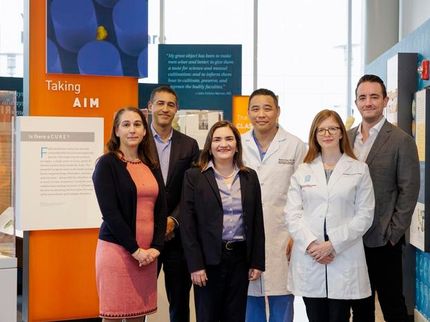The Ben & Catherine Ivy Foundation contributes $10 million to TGen for brain cancer research
Arizona philanthropist Catherine (Bracken) Ivy keeps her focus on those diagnosed with brain cancer
The Ben & Catherine Ivy Foundation has awarded $10 million in grants for two brain cancer research projects at the Translational genomics Research Institute (TGen).
One $five-million-project is titled "Outliers in glioblastoma Outcome: Moving the curve forward." This five-year investigation seeks to discover why approximately two percent of glioblastoma multiforme (GBM) patients — the outliers — live far beyond the average survival time of 18 months. GBM is the most common and aggressive form of malignant primary brain tumor; 98 percent of people diagnosed with GBM live less than 18 months.
"A major challenge with brain cancer is that people survive such a short time," said Catherine (Bracken) Ivy, founder and president of The Ben & Catherine Ivy Foundation. "If this research enables patients to live longer, clinicians and researchers will gain a better understanding of how this disease works, which will bring us time to move closer to a cure."
"The tireless and dedicated support of programs like the Ivy Foundation is helping transform ideas into medical reality," said TGen President and Research Director Dr. Jeffrey Trent.
By precisely identifying the billions of molecular building blocks in each patient's DNA through whole genome sequencing, TGen researchers hope to discover the genetic differences between those patients who survive only a few months, and those who survive longer because their brain cancer develops more slowly.
Using these genetic targets, TGen researchers will identify those patients most likely to benefit from the current standard of care, and those who might best benefit from alternative or new experimental treatments.
"If we can identify patients who will likely only survive a few months on current standard of care regimens we can then prioritize those patients for personalized clinical trials," said Dr. David Craig, TGen's deputy director of bioinformatics and one of the project's principal investigators.
First-in-Patient Clinical Trial Studies
In the second $five million project, "Genomics Enabled Medicine in Glioblastoma Trial," TGen and its clinical partners will lead first-in-patient clinical trial studies that will test promising new drugs that might extend the survival of GBM patients.
This multi-part study will take place in clinics across the country and TGen laboratories.
This project begins with a pilot study of 15 patients, using whole genome sequencing to study their tumor samples to help physicians determine what drugs might be most beneficial.
To support molecularly informed clinical decisions, TGen labs also will examine genomic data from at least 536 past cases of glioblastoma, as well as tumor samples from new cases, developing tools that will produce more insight into how glioblastoma tumors grow and survive. TGen also will conduct a series of pioneering lab tests to measure cell-by-cell responses to various drugs.
"We expect to identify genes that play a crucial role in this cancer's survival and that may be crucial to the survival of other types of cancer as well," said Dr. Michael Bittner, co-director of TGen's Computational Biology Division.
To get new treatments to patients as quickly as possible, this five-year study will include a feasibility study involving up to 30 patients, followed by Phase II clinical trials with as many as 70 patients. TGen intends to team with the Ivy Early Phase Clinical Trials Consortium that includes: University of California, San Francisco; University of California, Los Angeles; the MD Anderson Cancer Center; Memorial Sloan Kettering Cancer Center; University of Utah; and the Dana-Farber/Harvard Cancer Center.
The results of these clinical trials should not only help the patients who join them, but also provide the data needed for FDA approval and availability of new drugs that could benefit tens of thousands of brain cancer patients in the future.
Most read news
Other news from the department business & finance

Get the life science industry in your inbox
By submitting this form you agree that LUMITOS AG will send you the newsletter(s) selected above by email. Your data will not be passed on to third parties. Your data will be stored and processed in accordance with our data protection regulations. LUMITOS may contact you by email for the purpose of advertising or market and opinion surveys. You can revoke your consent at any time without giving reasons to LUMITOS AG, Ernst-Augustin-Str. 2, 12489 Berlin, Germany or by e-mail at revoke@lumitos.com with effect for the future. In addition, each email contains a link to unsubscribe from the corresponding newsletter.























































